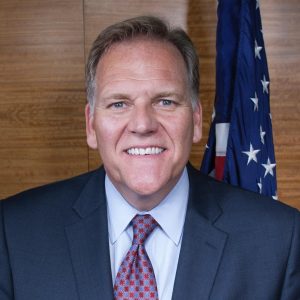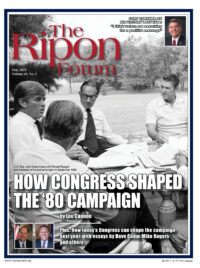
America’s position in the world is shifting beneath us.
Strategically speaking, we are ceding ground to the Chinese, Russians, Iranians, and to terrorists. All of this has a negative impact on our future.
Congress can take some important steps this year to turn back this dangerous trend threatening America’s leadership role in the world.
A good start would be an Authorization for the Use of Military Force (AUMF) and renewal of the PATRIOT Act to defeat ISIS. ISIS should be confronted with a unified military, diplomatic and legal strategy that does justice to the threat ISIS is: a terrorist organization with territory and an army hell-bent on our destruction.
Strategically speaking, we are ceding ground to the Chinese, Russians, Iranians, and to terrorists. All of this has a negative impact on our future.
Congress should also reject the proposed nuclear deal with Iran in order to prevent a highly destabilizing nuclear and conventional arms race in the Middle East. The proposed deal with Iran does nothing to stop weaponization or missile development, two of three critical elements needed to become a nuclear armed power. As the world’s most prolific state sponsor of terrorism, I can only imagine the kind of trouble that Iran’s Quds Force would create for the United States and our allies with the security a nuclear umbrella provides.
Unfortunately, Iran is just one player in a greater proliferation problem. The potential for a deal there has sparked nuclear interest from Turkey, Egypt, Jordan, the United Arab Emirates and Saudi Arabia. In fact, Saudi Arabia recently entered into a $2 billion, 20 year agreement with South Korea to explore the construction of two nuclear reactors.
The UAE is now questioning whether it wants to continue to abide by the 123 Program and Jordan has entered into a nuclear deal with Russia. These are the real consequences of sliding away from the original objective to prevent Iran from becoming a nuclear power.
As for China, the U.S. just signed off on selling dual-use nuclear technology to the Chinese that could provide them with quieter ballistic missile submarines, making them harder to track, thus shifting the balance of power. The Chinese are pushing the U.S. and our allies out of the South China Sea, through which 40% of the world’s trade travels. And they have taken aim at America’s dominance of space, upending the previously benign environment by fielding missiles capable of destroying satellites.
Congress can push back on these and other Chinese aggressions through the appropriations and defense authorization process.
Finally, the Chinese and Russians are eating our lunch in cyberspace. Not only are they stealing staggering amounts of intellectual property and sitting on our critical infrastructure and financial services networks, they are working to create a new Internet – one that they control. These two authoritarian nations have formally agreed not to hack each other and to cooperate on technology that can stifle dissent and oppression against their own people.
President Obama’s recent Executive Order that would create a sanctions regimen against foreign hackers is an important start, but much more must be done on cybersecurity. Creating instantaneous, voluntary sharing of malicious code between the government and private sector is a critical first step in protecting this nation’s lifeblood: private industry. Right now the government is legally unable to notify companies of impending attacks or malicious code and programs sent to infiltrate their networks. Legislation passed in the House and pending in the Senate would create such a common sense program. This is an easy fix that will save intellectual property and the American jobs that come with it.
Congress can take some important steps this year to turn back this dangerous trend threatening America’s leadership role in the world.
Congress also needs to weigh in on Chinese and Russian efforts to manipulate control of the Internet at the United Nations. They are doing this to improve their position – at our expense.
Congress can take the lead on each of these important national security priorities this year. Doing so would improve our standing in the world today and provide a better future for the next generation of Americans.
Mike Rogers is the former Chairman of the House Intelligence Committee. He is currently the host of a nationally-syndicated talk show on Westwood One. He also serves as Honorary Chairman of Americans for Peace, Prosperity and Security, and as a Distinguished Fellow at the Hudson Institute.




